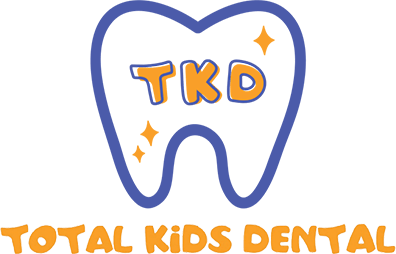.2507011838269.jpg)
Understanding Sudden Tooth Pain in Kids
When your child suddenly complains about a toothache, it’s easy to feel a wave of concern. Does it mean something serious? Could it have been prevented? Tooth pain can come out of nowhere, and as parents, knowing what might be causing it and how to respond can help ease discomfort and protect their dental health.
Common Causes of Tooth Pain
Everyday Triggers
Tooth pain in kids often stems from common dental problems. Cavities, small holes on the tooth caused by bacteria and acids, are a frequent culprit. While they might start as a dull ache, they can become quite painful if left untreated.
Though it sounds like an adult problem, gum disease doesn’t spare kids either. It can cause irritation, swelling, and even expose sensitive tooth roots. Another common cause is a cracked tooth, which could happen from grinding, biting something hard, or minor injuries during play.
Sometimes, it’s the little things we don’t think about. Biting into a popcorn kernel or sipping a hot drink can trigger sharp, temporary pain. These everyday actions highlight just how delicate teeth, especially children’s teeth, can be.
Unusual Causes to Consider
Tooth pain isn’t always about a visible cavity or injury. Sinus infections can sometimes create pressure in the area near the upper teeth, masquerading as a toothache. Similarly, problems with the temporomandibular joint (TMJ), which connects the jaw to the skull, might cause discomfort that feels like dental pain. Emerging wisdom teeth, although rare in younger children, can also create pressure and soreness as they try to make their way through the gums.
Another surprising element? Pain in a child’s tooth could actually be referred pain from elsewhere in the body. Health conditions like nerve disorders or even heart issues might cause discomfort that seems dental but isn’t. Paying attention to the type and duration of pain can help pinpoint the real cause.
How to Ease Tooth Pain at Home
Simple Steps for Immediate Relief
Tooth pain might seem alarming at first, but there are ways to provide comfort right at home. Start with a gentle rinse using warm saltwater to clean the area and soothe inflamed tissues. For pain relief, over-the-counter medications like ibuprofen or acetaminophen can help. Be sure to follow the dosage appropriate for your child’s age.
Clove oil, a natural remedy, can provide a numbing effect when applied gently with a cotton swab. Another trick? A cold compress on the outside of the cheek near the painful area. This can reduce swelling and provide temporary relief, especially if the pain is due to an injury.
Keep Hygiene in Mind
Maintaining good oral hygiene during tooth pain is crucial, but go easy. Use a soft-bristled toothbrush to clean the unaffected areas and avoid harsh mouthwashes, as they can irritate sensitive gums or teeth. Everything you do should aim to protect the affected tooth until a dentist can examine it.
When to Seek Professional Help
Recognizing Red Flags
Sometimes tooth pain is more than just a passing discomfort. If your child experiences persistent pain, swelling, or any signs of infection like fever or pus near the tooth, it’s time to act quickly. These symptoms could point to a dental abscess, a serious condition requiring immediate attention.
Also, note any visible damage like a crack or a significant chip, as this might expose the inner part of the tooth to bacteria, leading to further issues. When in doubt, it’s always safer to schedule an evaluation with a dentist.
What to Expect at the Dentist
At your dental visit, the dentist will thoroughly examine the area and may conduct X-rays to identify hidden problems beneath the surface. If the issue is minor, like a small cavity, it might be treated with a filling. For more significant issues such as a cracked tooth, options like bonding, crowns, or even root canal treatment might be necessary.
If your child is nervous, try reassuring them before the visit. Explain in simple terms what the dentist might do and why it’s important for their smile. This creates a positive association with dental care early on.
Preventing Future Trouble
Building Healthy Habits
Preventive care is the key to avoiding future dental pain. Daily brushing and flossing go a long way in maintaining strong teeth. Introduce fluoride toothpaste, as it strengthens enamel and helps prevent decay. To make oral care more enjoyable, allow your child to choose their toothbrush or reward them for keeping a good brushing routine.
Diet plays a role too. Foods rich in calcium, like spinach, yogurt, and cheese, make teeth stronger. Limiting sugary snacks reduces the chances of cavities. Together, these habits protect your child’s smile and keep dental issues at bay.
Safety First
For active kids, accidents are sometimes unavoidable. Take steps to safeguard their teeth by having them wear mouthguards during sports activities. Custom-fitted mouthguards offer the best protection, but even over-the-counter versions can make a big difference. Educating young children about the dangers of chewing on ice or pens can also prevent unnecessary damage.
Supporting Your Child Through the Process
Tooth pain isn’t just physical; it can stir up anxiety or self-consciousness, especially for kids worrying about their peers. Reassure them that tooth issues are common and that solutions are just a dental visit away. Be empathetic and encourage them to share their feelings about the pain or the visit.
At Total Kids Dental, we understand how daunting dental issues can be for kids and parents. That’s why our caring team in Phoenix, AZ, is dedicated to keeping smiles healthy and happy. If your child has sudden tooth pain, don’t wait to get help.
Call us at (602) 610-0338 today to schedule an appointment and take the next step toward relief.

